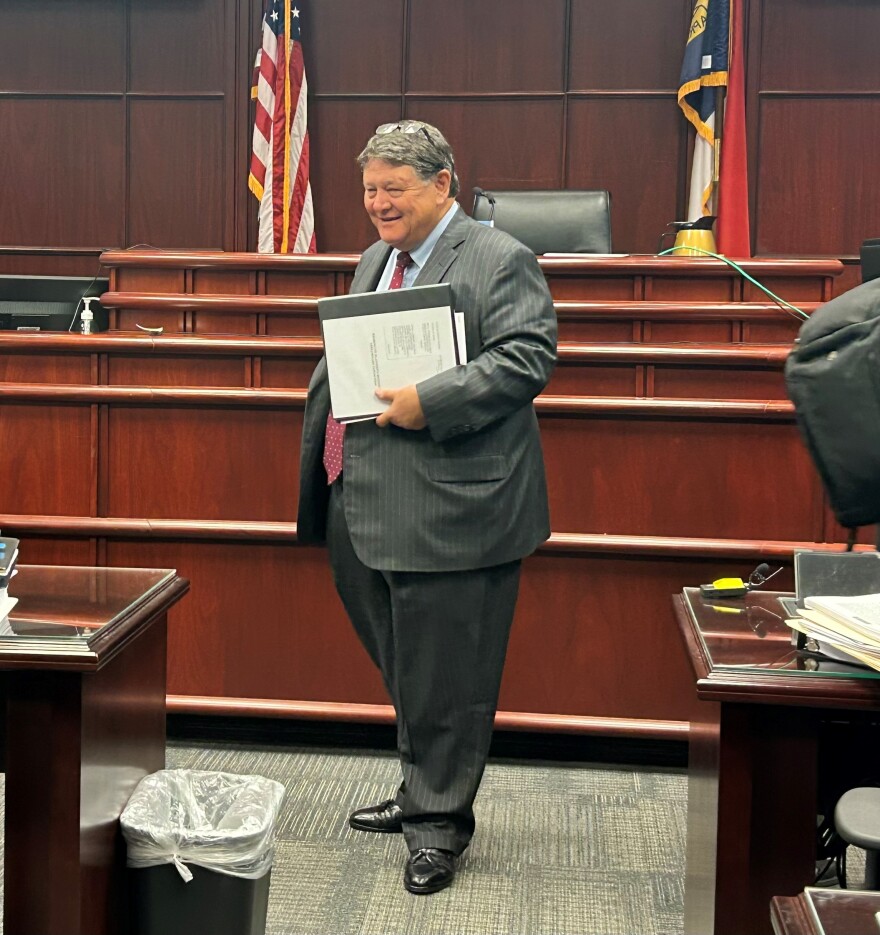The governor's appointment authority over state and county elections boards has been preserved, for now, following a ruling by a three-judge panel in state trial court today.
The judges, two Republicans and a Democrat, issued a preliminary injunction in the matter, a lawsuit filed by Gov. Roy Cooper against leaders of the North Carolina General Assembly's Republican majority.
Cooper, a Democrat, is challenging the constitutionality of a GOP-backed law that would restructure state and local elections boards just as the 2024 presidential election cycle gets underway.
Under current law, governors appoint members to the five-person state boards from lists provided by North Carolina's two major parties, with a majority from the governor's own party. And governors get to choose chairpersons for the county boards.
The boards oversee all aspects of elections administration, including validating absentee ballots, approving early voting plans, hearing candidate challenges and conducting the county canvass that culminates in certifying election results.
The Republican-crafted law passed in October over Gov. Cooper's veto would restructure the state board into an eight-person body, with two members each chosen by the majority and minority leaders in the state House and Senate. And lawmakers would appoint the four-member county boards too.
Significantly, under the disputed law, should the even-numbered boards deadlock on issues of naming a chairperson or elections director, the choice would go to the legislature.
Taking away the governor's ability to appoint, remove, and supervise members of an executive agency would deny him the ability to fulfill a constitutional duty to enforce the laws of the state, according to Cooper's lawsuit, and therefore constitutes a violation of the separation of powers.
"The separation of powers clause plainly and clearly does not allow the General Assembly to take this much control over the execution of the laws from the governor and lodge it with itself," argued attorney Jim Phillips, representing Cooper.
Phillips was citing a 2016 ruling from the North Carolina Supreme Court that found the GOP-led legislature violated the state constitution's separation of powers by making appointments to certain executive agencies, ruling in favor of a legal challenge filed by then Gov. Pat McCrory, a Republican.

In his arguments seeking the preliminary injunction, Phillips also cited a case filed by Cooper shortly after he took office in 2017. In that case, as with the current legal challenge, Cooper sued Senate Pres. Pro Tem Phil Berger and House Speaker Tim Moore to block a law that gave legislators more power over appointments to the state elections board.
In the earlier case, even though the legislation did not take away all of the governor's appointment power, the state Supreme Court majority ruled it abridged the governor's executive authority enough to constitute a separation of powers violation and ultimately invalidated the measure.
One of the dissenters in that case was Associate Justice Paul Newby, who is now Chief Justice and presides over a 5-2 conservative majority on the court. In his dissenting opinion, Newby said he believed the dispute over appointment powers was a "political question," one wholly belonging to another branch of government and that courts should not intervene.
Accordingly, attorney Martin Warf, representing the legislative defendants in the current case, leaned on that argument. Warf argued that before issuing a preliminary injunction, the trial-court panel should consider the likelihood that Gov. Cooper would succeed on the merits of his lawsuit should it ultimately go before the state Supreme Court.
"The General Assembly has the power to appoint statutory officers, it is not an executive power," Warf claimed.
What the court should be asking, Warf continued, is whether under the political question doctrine there is an explicit check on such legislative appointments.
"There is not," he concluded.
Nonetheless, the three-judge panel quickly ruled in favor of Cooper and issued the preliminary injunction. The judges asked the parties to work together on planning a swift trial schedule.







